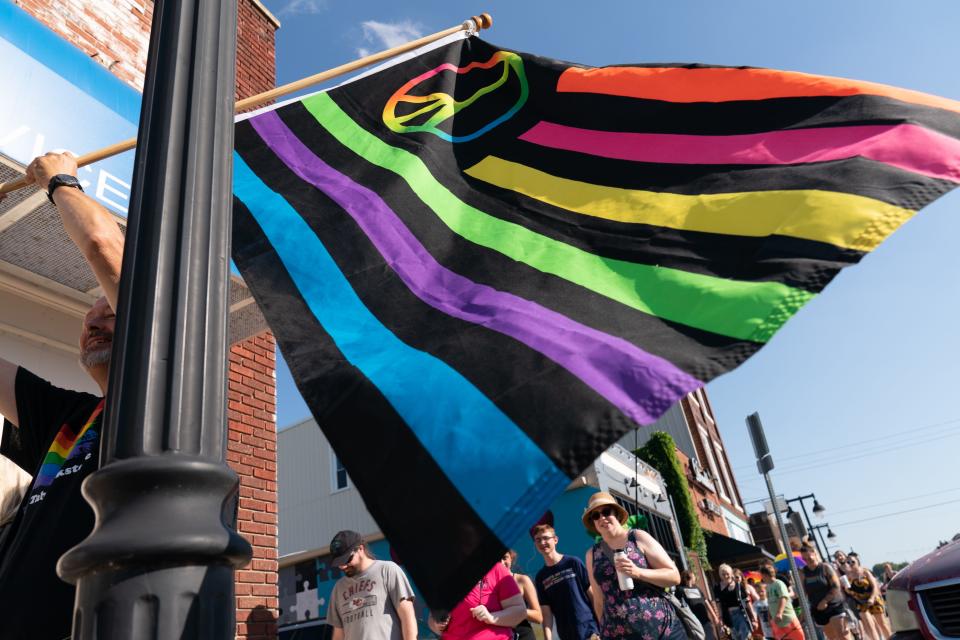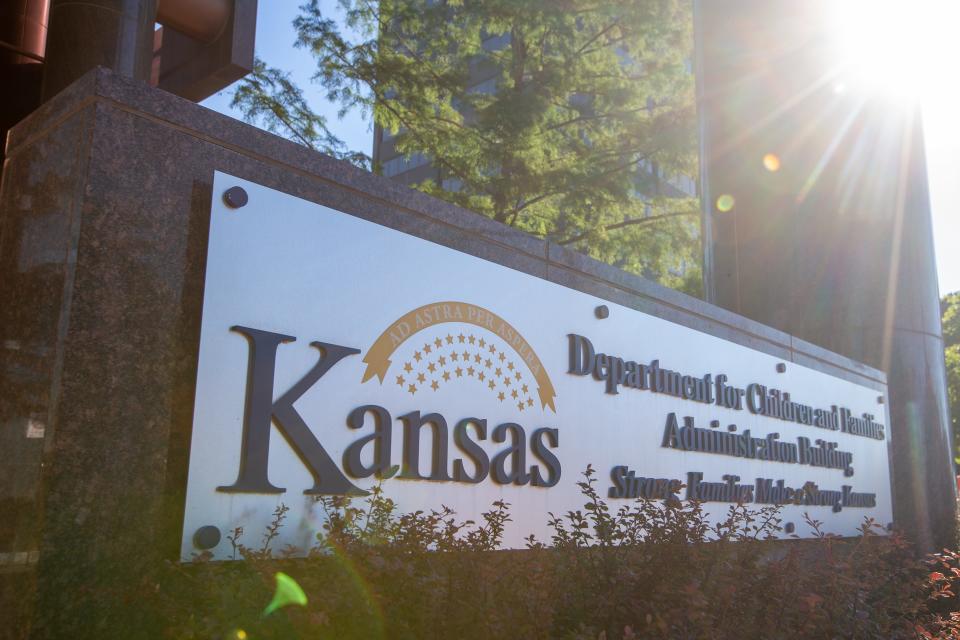Kansas child welfare agency will be more accepting of LGBTQ+ youths. Here's how
The state's child welfare agency is changing how it treats gay, lesbian and transgender youths to put more emphasis on accepting an LGBTQ+ child.
Bid solicitation documents show the Kansas Department for Children and Families is searching for a vendor to create training called "LGBTQIA+ Youth Part 2." The new training will reflect policy changes in the child welfare system intended to make LGBTQ+ children feel more accepted, while not automatically blaming them for family conflict.
DCF screening blamed LGBTQ+ children for family conflict

Bid documents state the new LGBTQ+ youth training at DCF is needed because of a statewide practice change under the Kansas Practice Model.
The agency's DEI committee discovered that when child protection referrals were made to DCF because LGBTQ+ youth were not accepted by their family, they were screened in as "child behavior problems." After the proposed training, they will be categorized as "caregiver unable to care/unavailable."
New training is more accepting of LGBTQ+ children
"Research indicates when LGBTQIA+ youth are not accepted by their caregivers and family, they may experience negative mental health side effects, including depression and suicidal ideation," said Mike Deines, a DCF spokesperson. "By changing how the intake is assigned, we increase the likelihood children will feel accepted and receive improved services through the Department for Children and Families. Family conflict doesn't always stem from a child that has been labeled with a behavioral problem, however, these types of cases are often categorized as a child 'behavior problem.'"
What was Part 1 of the LGBTQIA+ youth training?
Deines said the Part 1 training was announced to the agency in February. Bid documents say DCF created the training, titled "Introduction to Supporting LGBTQIA+ Youth," by adapting a course developed by the Academy for Professional Excellence at San Diego State University.
"The course prepares child welfare professionals for working with youth who are LGBTQIA+ and their families in ways that support the safety and well-being of LGBTQIA+ youth," Deines said. "Resources specific to Kansas and from national resources are included specific to youth, to their family members and other supports, and to professionals."
The course description states that LGBTQ+ youths are overrepresented in foster care, face an elevated risk of homelessness and are at a greater risk of harm from others.
The course objectives are for participants to learn to do the following:
Identify LGBTQIA+ terms.
Describe the increased risk of homelessness, mental health concerns and potential safety concerns for LGBTQIA+ youth who experience out of home placement.
Describe how the "Genderbread Person" concepts can be used to reflect the gender expression of an individual.
Select pronouns which correctly describe the participant.
Describe how to address "misgendering" and "deadnaming" when witnessed.
Recommend resources useful for supporting LGBTQIA+ youths, family members and professionals in Kansas.
What will be in Part 2 of the LGBTQIA+ youth training?

Part 2 will have two specialized trainings delivered to about 550 practitioners.
"Part two will focus on the implementation of the practice change by helping practitioners apply their knowledge of the LGBTQIA+ community to their analysis of specific cases," Deines said.
Kansas Protection Reporting Center staff, who are the ones who receive initial reports of suspected abuse or neglect and do an initial assessment, their training will have the following objectives:
Explain the possible negative impacts that occur for a child when their caregivers do not accept them for their LGBTQIA+ status.
Identify protective factors for LGBTQIA+ individuals.
Include use of pronouns in everyday conversations, professionally and with clients.
Apply their knowledge of the LGBTQIA+ community to their analysis of the situation to ask questions that help define the report.
Accurately evaluate what situations meet the definition of Caregiver Unable/Unavailable to Provide Care and which rise to the level of Emotional Abuse.
Trainings for child protection staff — who are assigned reports that meet certain criteria and then complete an assessment in the field by working with parents, caregivers and children — will have the following objectives:
Explain the possible negative impacts that occur for a child when their caregivers do not accept them for their LGBTQIA+ status.
Identify protective factors for LGBTQIA+ individuals.
Include use of pronouns in everyday conversations, professionally and with clients.
Explain the possible negative impacts that occur for a child when their caregivers do not accept them for their LGBTQIA+ status.
Identify ways to articulate the negative impact on the child to the caregivers.
Vendor will develop a plan to ensure participants are engaged and have met the learning objectives.
Kansas will hire expert with federal funds
For Part 2, the agency is looking to hire an expert through a request for proposals. The winning bidder will get a one-year contract with options to renew it for two additional years.
The vendor would create PowerPoint trainings with notes, deliver training to DCF staff and train DCF staff on how to deliver future trainings without the assistance of the vendor.
Kansas taxpayers won't be footing the bill for the training. The money will come from federal funds under the Child Abuse Prevention and Treatment Act.
"The agency recognizes the need for someone who is viewed as an expert on this topic to develop and initially train the material to ensure our staff are equipped with the best knowledge," Deines said. "The vendor will include a 'Train the Trainer' process in their proposals so DCF staff can provide training for new staff that onboard."
Deines said no elected officials were involved in the process.
Jason Alatidd is a statehouse reporter for the Topeka Capital-Journal. He can be reached by email at jtidd@gannett.com. Follow him on Twitter @Jason_Alatidd.
This article originally appeared on Topeka Capital-Journal: Kansas DCF changes training on LGBTQ+ children not accepted by family

